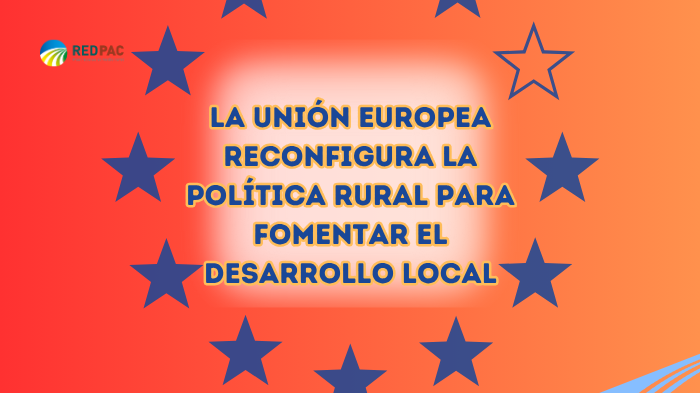
20 de June de 2025
Dinamización rural
Resiliencia y competitividad
The European Commission and the Rural Pact Coordination Group present a roadmap to revitalize Europe's rural environment.
- The European Commission and the Rural Pact Coordination Group present a roadmap to revitalize Europe's rural environment.
- The document establishes better rural representation in European Union policies, more flexibility and strengthening of local capacities.
At the end of December 2024, the Rural Pact Coordination Group (RPCG) , a body promoted by the European Commission (EC) to advance the Long-Term Vision for Rural Areas in the European Union (EU) , published a joint declaration outlining key measures to ensure the social and economic development of rural areas in Europe.
The declaration focuses on the need for a cross-cutting and integrated approach to addressing the specific challenges of rural areas—such as depopulation, aging, and economic decline—and proposes a new strategy that requires more funding, better governance, and specific policies tailored to the diversity of territories.
Key points
Among the proposals included in the declaration, the need to strengthen rural proofing stands out . This involves reviewing EU policies from a rural perspective and taking into account the specific needs of rural areas. The Rural Guarantee Facility is an analytical and evaluation tool that seeks to ensure that public policies, regulations, and programs take into account the realities, needs, and opportunities of rural areas before being implemented. Its objective is to prevent political decisions from generating unintended negative effects on rural areas and, on the contrary, to promote their equitable development.
The document also advocates:
- A mandatory minimum percentage of funding for rural development, both at the national and European levels, suggesting a minimum of 30% of EU funds for non-agricultural purposes.
- Increase the allocation for participatory local development (PLD) from 5% to 10%, with mechanisms such as LEADER or so-called “ smart villages ”.
- Study the creation of a specific European rural development fund if a mandatory minimum allocation within the Multiannual Financial Framework is not feasible .
Local capacity and participation
A key part of the document focuses on the need to provide rural communities—especially small and under-resourced ones—with greater technical capacity, access to financing, and decision-making autonomy. To this end, the following proposals are made:
- Technical support and financing for project preparation from the early stages.
- More flexible application processes, with simplified cost options and results-based payments.
- Promote networks of collaboration and citizen participation , strengthening the role of rural movements, local associations, and community groups.
Rural monitoring and representation
The declaration also calls for improved monitoring of EU spending in rural areas by:
- Labeling of funds by sectors and territories.
- Inclusion of qualitative indicators such as social cohesion or community capital.
- Development of “ SMART” indicators – parameters that must be specific, measurable, achievable, realistic, and time-bound – for rural projects.
It also highlights the weakness of rural representation in policymaking processes, except in the agricultural sector, and calls for rural communities to have a greater voice at the European level.
Future of the Rural Pact
The text is based on the premise that the EU's well-being depends largely on the vitality of rural areas, which represent not only an economic driver (agriculture, forestry, renewable energy, and tourism), but also an essential element in addressing climate change, territorial cohesion, and environmental sustainability.
The implementation of these proposals requires a multi-level strategy and strong inter-institutional coordination. In this regard, the GCPR proposes the possibility of establishing a specific Directorate-General for Rural Development, separate from DG AGRI , within the EC, as well as requiring Member States to develop national and regional strategies consistent with EU priorities.
The declaration, adopted by consensus by the majority of GCPR members, thus establishes a new framework for action that seeks to provide the European rural community with the necessary means, visibility, and leadership to face the challenges of the future.









